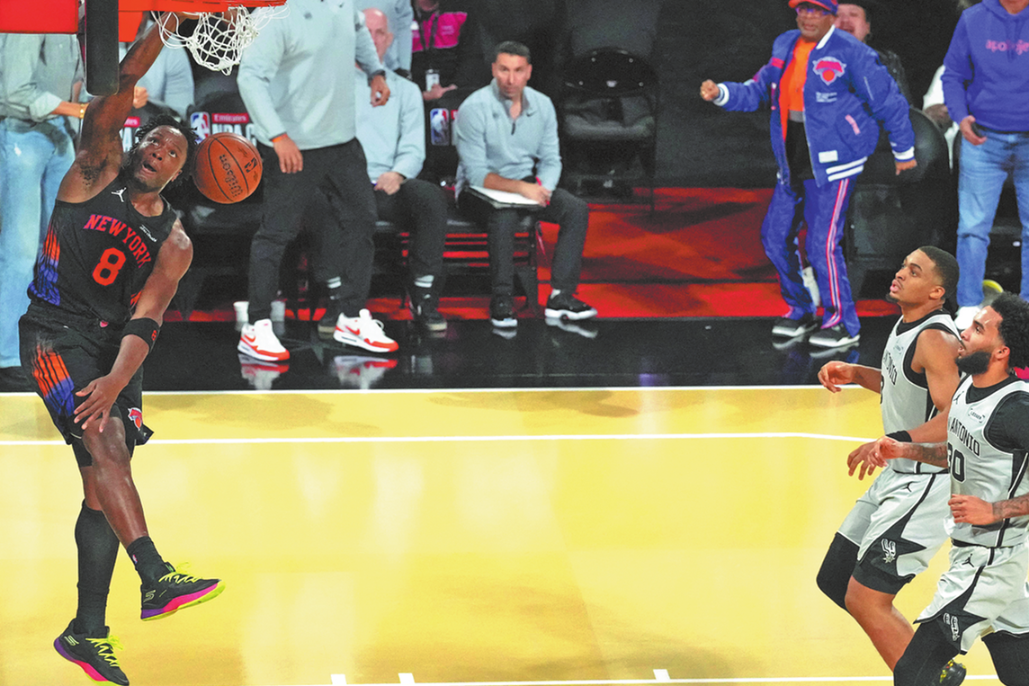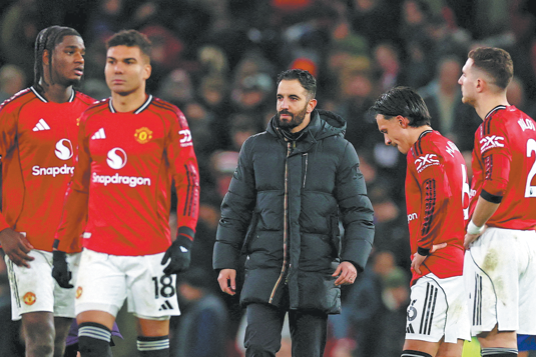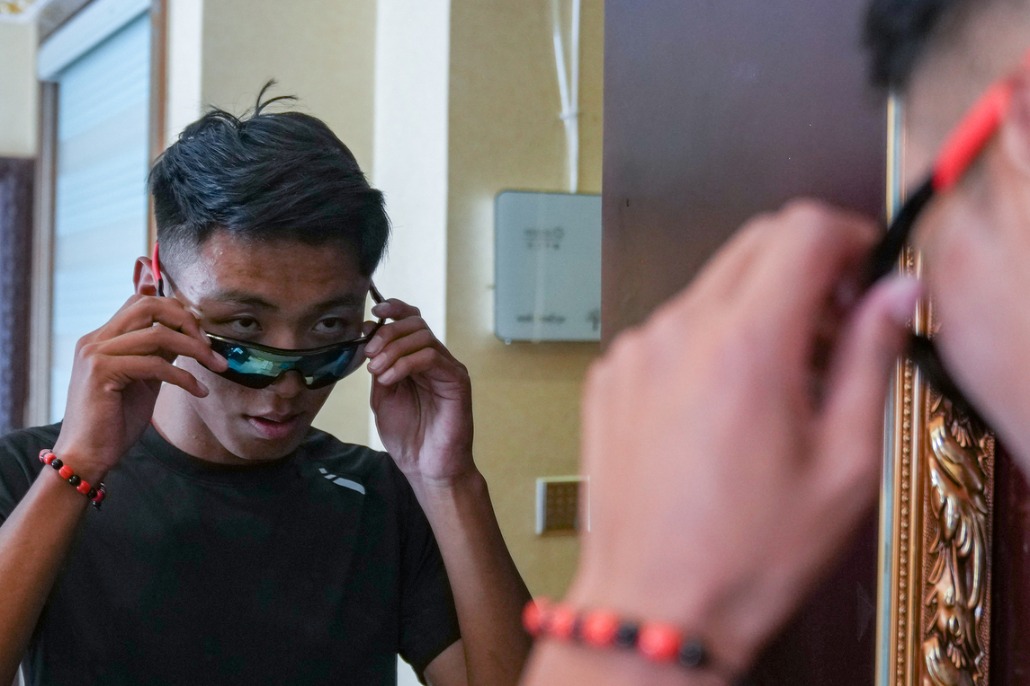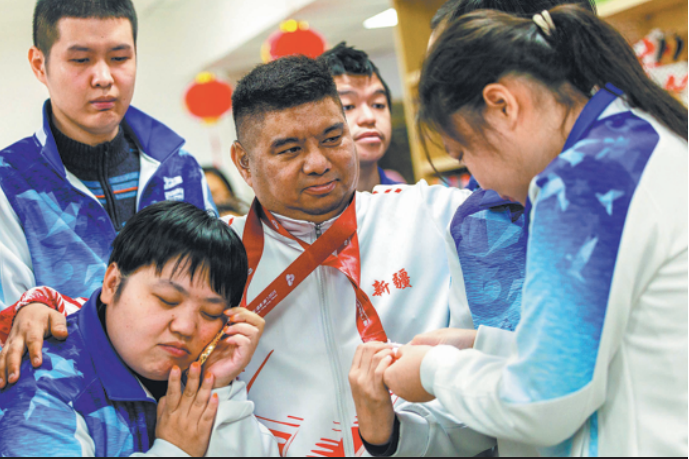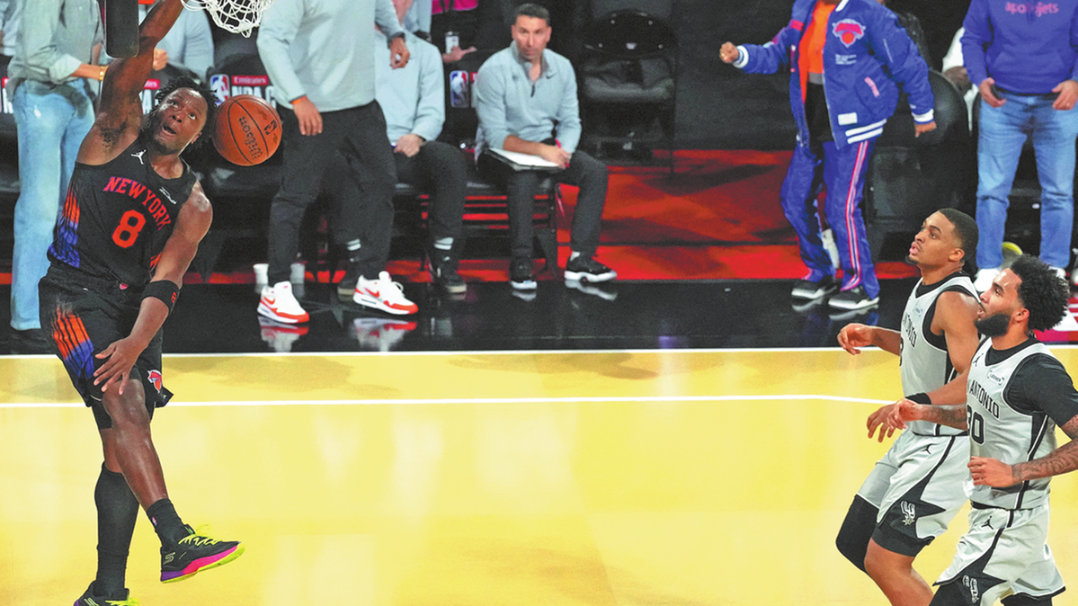China's Wu Lei proves a hit with Spanish soccer fans

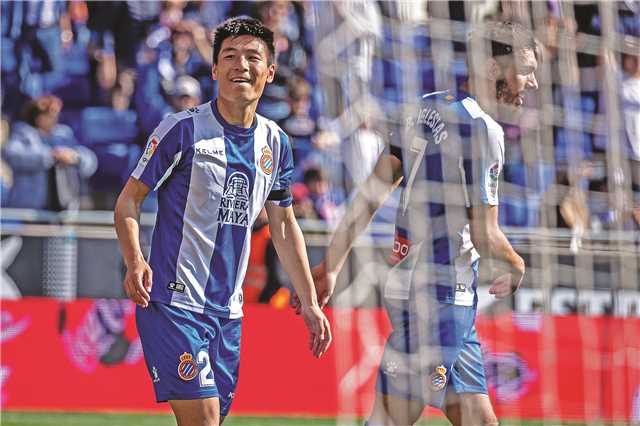
Striker wins friends and points at the highest level in Europe
When FC Barcelona's stars arrive in China for their tour this summer, they can expect an even more knowledgeable and excitable welcome than usual from the local fans – and that is partly down to one player, who does not even play for them. In fact, he plays for their crosstown rivals Espanyol. China's Wu Lei. Since the 27-year-old striker made the move from Shanghai SIPG to the Barcelona-based team in January, interest in Spanish soccer in China has grown hugely.
Espanyol has been owned by Chinese businessman Chen Yansheng's Rastar Managerial Group since January 2016, making it the third side in Spain to be at least partly Chinese-owned, following in the footsteps of Granada and Atletico Madrid. But while ownership may be one thing, having one of your country's players involved in a competition is a very different matter, attracting attention on a far larger scale. And the good news is that Wu Lei is turning out to be quite a player.
"If he had been signed straight away (after the Chinese takeover), there would definitely have been question marks about him. It's not a joke to come here, he had to be the best China had to offer to play here," Spanish football journalist and Espanyol fan Guillem Balague told China Daily.
"But so far, it's worked really well – he's come to a club that needs a bit of a spark, he's doing all the right things, he's very humble and hard working and people love him".
Scoring his first goal for Espanyol on his fifth appearance, in the recent 3-1 win over Real Valladolid, has certainly done him no harm, and the Chinese international striker has given a lift to a club that has spent too much time recently underachieving.
"Before the Chinese investment came along, Espanyol was a bit of a depressing place, we'd not had many moments of hope for a few years," said Balague.
"Fans don't necessarily just want money, they want hope, something they can believe in – year after year of being mid-table brings you down. What the current coach Rubi is doing does suggest a narrative, so I hope the owners give him enough time, and in Wu Lei, I think we've got a serious player, so I'm very pleased we've got him for three more years to see how things develop."
Another seasoned observer of Spanish soccer, British journalist Sid Lowe, said that while the transfer had a clear economic aspect - Wu Lei's Espanyol debut was watched by 40 million people on television in China – the player's impressive performances had dispelled some of the initial cynicism and might also make skeptics lose some of their prejudices about the standard of Chinese soccer.
"When a Chinese-owned club buys a Chinese player it's easy to think he'll be a teacher's pet and is just there for commercial reasons, but the surprise is that he's actually turned out to be pretty decent," Lowe told China Daily.
"He's bigger and stronger than I expected and looks like a tough, quick clever striker so this could turn out to be good news for the club.
"He came with a good reputation from back home (he was 2018's Chinese Super League top scorer and MVP), but people are always going to be cynical about the standard of the Chinese League.
"But if Wu Lei turns out to be good – and it looks like he is - and helps Espanyol step up from their current status as a middling club, this move could end up really achieving things for the club, the player and the status of Chinese soccer overall."
With Chinese buyers having money to spend at a time when so many other countries do not, Balague said it was no surprise that Spain was proving to be an attractive place in which to invest and from which to learn.
"Spain is an obvious investment target," he said. "It's the next best place to invest after the English Premier League and there are so few clubs available there at a decent price, so Spain's the next best option. The Spanish league is becoming more financially stable, it's growing worldwide as a brand, and when you see how well things have gone at Atletico Madrid in terms of raising the team's profile in China, it shows how it can work."
It is still early days in Wu's career in Spain, but so far he seems to be saying and doing the right things, and winning friends with his attitude as well as helping win the team win points on the pitch – and also attracting a whole new Chinese fanbase for the team.
"He came a bit injured but said he wanted to work with the team straight away, which is a really positive sign, and told the coach that he didn't want to be treated any differently just because he was Chinese," said Balague.
"There are definitely a few more Chinese fans around the club, and his shirts have become the number one seller. Espanyol are getting into it as well - they've had the names on their shirts in Chinese, and some of the game times are well suited to the Chinese audience.
"We'll have to see if it's something lasting, or what we in Spain call a gaseosa, like a drink which fizzes at first and then goes flat. The real proof will be in a year's time, but so far the signs are encouraging."
Most Popular
- EASL designated as official qualification path to BCL Asia
- Knicks rally to win NBA Cup
- 'Many lessons to be learned' from 2026 Games preparations, says ski chief
- Ready for an aerial battle
- Snooker sets winter pace in high-altitude Xizang
- Cherries leave sour taste with late draw
















